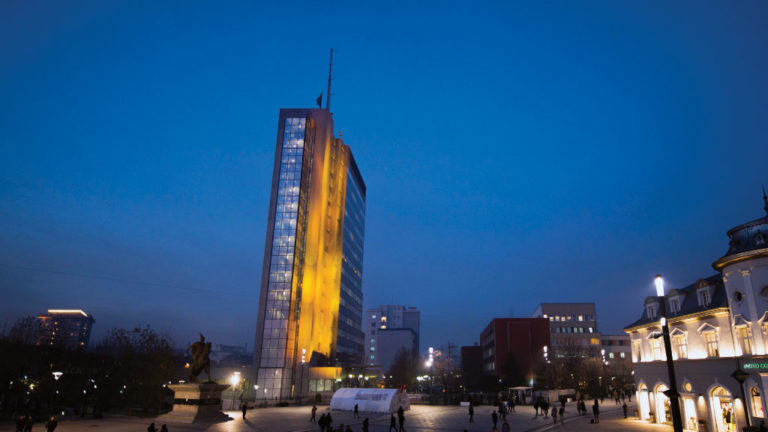– An outlook from Kosovo
”Freedom from fear is a summary of the whole philosophy and human rights.”
Dag Hammarskjöld, Swedish diplomat and former UN Secretary General
Gender-based violence is a shameful reality in many societies around the world and is unfortunately also present in Kosovo. This phenomenon is deeply rooted in gender inequalities that are often ignored and silently accepted, not challenged. In Kosovo, the widespread attitude is that physical violence is part of married life and that domestic abuse is a private family matter that should not be reported to the police. It is assumed that over 70% of women are subjected to violence in their lifetimes by their partners, husbands and or male family members. It is merely an assumption because not all domestic abuse and violence is reported.
On the other hand, Kosovo has developed a comprehensive and modern legal framework with regards to the protection of the rights of women and gender equality. These laws are in compliance with international standards and conventions on gender equality and anti-discrimination measures. Kosovo’s constitution makes gender equality a fundamental value of Kosovo society. Specifically, the constitution obligates the parliamentary assembly of Kosovo, civil services, the judiciary, prosecutors, and court systems to respect the principles of gender equality – in compliance with international standards. Kosovo’s legal framework therefore forbids gender discrimination in any form.
In the constitution, Kosovo has adopted and enshrined many leading women’s rights protection instruments such as the UN Security Council Resolution 1325 on Women, Peace and Security and the UN Convention on the Elimination of All Forms of Discrimination against Women (CEDAW). Further, the Council of Europe’s convention on preventing and combating violence against women and domestic violence, or the Istanbul Convention, is regarded as an essential tool in combating all forms of violence against women. Unfortunately, there is still a large gap between establishing policies and implementing them in everyday life in Kosovo.
Whether you are born as a girl or a boy in Kosovo still determines how you will be treated and treating others during your life. These differences are, among other things, reflected in a very low participation of women in the labor market. This is one of the most pressing challenges that must be addressed. Women make up 49.7 percent of the Kosovo population and 50.2 percent of the working age population. Yet, women’s labor participation rate is alarming; only 21.1 percent of the 40.5 percent economically active women participates in the labor market. This is three times lower than the male participation rate. The situation negatively affects women’s earning capacity, economic security and places women in a very vulnerable and subordinated position.
In order to contribute to the improvement of women’s situation in Kosovo, as of 2015, Sweden supports the Agency for Gender Equality (AGE) – the highest government institution mandated to implement and monitor the implementation of the Law on Gender Equality. The main objective of the support is to strengthen the institutional capacities of AGE and national gender mechanisms to effectively, and efficiently, fulfil their mandate. In mainstreaming the gender equality agenda in all Kosovo policy frameworks and systems, the goal is to partner with local and external actors for the advancement of the gender equality agenda in the Kosovo society.
Through these contributions, Sweden hopes to see a Kosovo where women can live a life free from violence and discrimination – a prerequisite for a dignified life in a fair and fear-free society.


